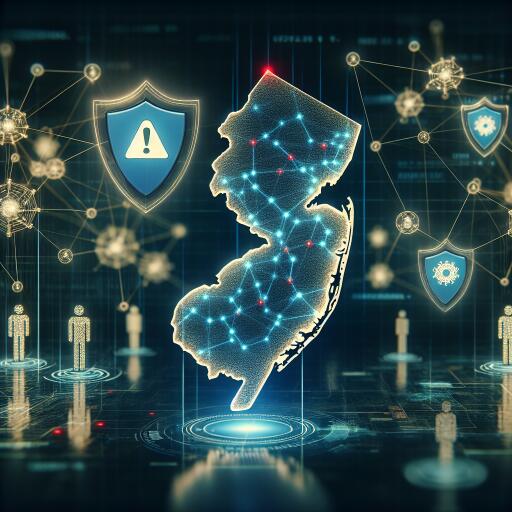New Jersey Takes Stock of Cybersecurity Threats, Protections
The cybersecurity landscape is teeming with risks that extend beyond the immediate horizon of local incidents, lighting up a network of systemic vulnerabilities across the sector. At the heart of this concern is the potential for a single cyber attack to trigger a cascade of disruptions that reach far and wide, impacting organizations and industries at a national level.
In New Jersey, conversations around cybersecurity are becoming increasingly focused on understanding and mitigating these systemic risks. Critical infrastructure and vital services often hinge on interconnected systems and shared technologies, making them vulnerable to widespread complications from targeted cyberattacks. For instance, a significant ransomware attack on a major medical claims processor demonstrated the profound and far-reaching consequences that such disruptions can have, affecting countless hospitals and healthcare providers across the United States.
This incident, among others, underscores the fragility of sectors that depend on a common vendor or technology platform. New Jersey has felt the impact of such vulnerabilities firsthand, with specific attacks compromising the personal information of over a million residents and impeding the functionality of hospital operations, including delay in patient care and surgical procedures.
Conversely, the state’s election infrastructure offers a contrasting narrative, illustrating the benefits of diversity and decentralization. Here, a single attack is far less likely to have a far-reaching effect on election security, showcasing a different approach to managing cybersecurity risk.
As the state forges ahead, the horizon is dotted with myriad cyber threats, from ransomware to politically motivated hacktivism. Despite a seemingly stable volume of cyberattacks year on year, recent legislative changes requiring more stringent reporting of incidents have brought about a significant increase in documented cases, providing a clearer picture of the cybersecurity challenges facing New Jersey.
The evolving cybersecurity landscape in 2023 hints at the continuous need for vigilance against attacks, with politics playing a pivotal role in shaping potential threats. New Jersey’s proactive stance in establishing stronger ties with international allies and addressing the concerns of its diverse communities signifies a broader geopolitical playing field where cyberattacks could emerge as tools of retaliation or conflict.
The advent of artificial intelligence (AI) also poses new frontiers of risk, with the potential use of AI in creating sophisticated deepfakes and personalized phishing attacks that could disrupt decision-making systems in critical sectors, from utilities to autonomous transportation, leading to tangible harm.
In response to these challenges, New Jersey emphasizes the power of collaboration and the importance of reporting cyber incidents. By fostering a culture of transparency and support, the state aims to turn the tide against cyber threats, protecting its infrastructure and communities through shared knowledge and defenses. This approach is further bolstered by federal grants that have enabled the state to augment its cybersecurity offerings to local governments, providing essential services that fortify the front lines of our digital world.
As cyber threats evolve, so too must our strategies to confront them. New Jersey’s comprehensive approach, from enhancing legislative frameworks to leveraging technology and fostering collaboration across sectors, sets a benchmark for cybersecurity readiness in an increasingly interconnected world.









